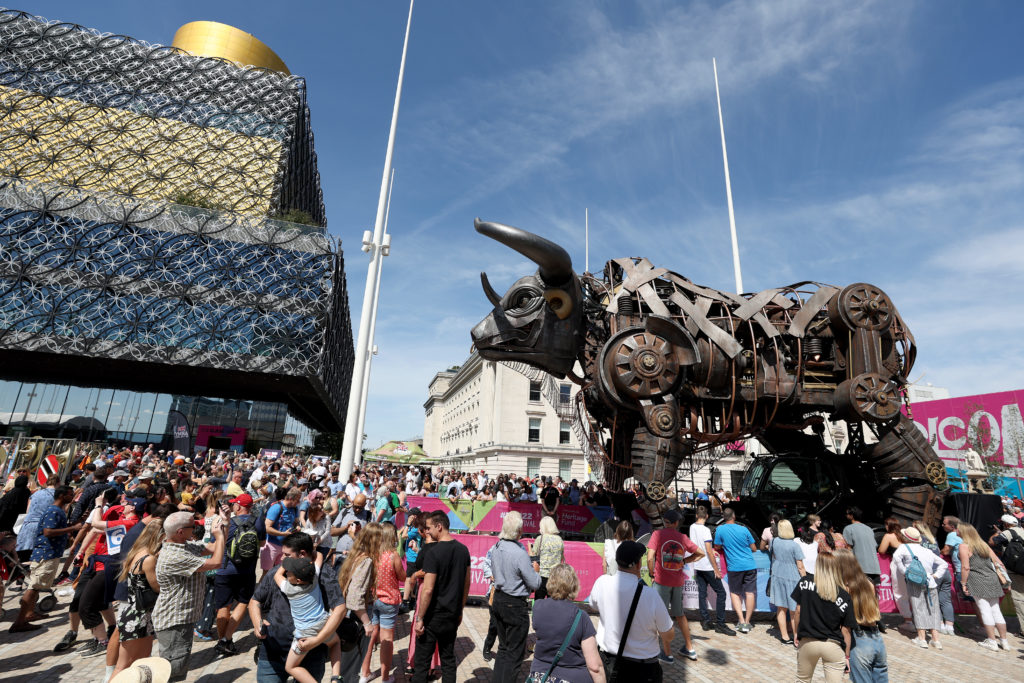
By Aidan Thompson and David Civil
Jubilee Centre for Character and Virtues, University of Birmingham
The Birmingham 2022 Commonwealth Games have been and gone, enthralling the City of Birmingham before departing in a blaze of mechanical bulls, a blitz of medals, and a blast of Ozzy Osbourne’s Black Sabbath. As usual following any major sporting event, local attention turns to the question of legacy. How will the Commonwealth Games benefit Birmingham and the wider region in the longer term?
Many journalists, politicians, councillors, and other stakeholders will define this legacy differently, with few seeking to measure it in any comprehensive or long-term way. This is because it is hard to determine a legacy through a focus on simple metrics. Do we, for example, prioritise participation in sport before and after the Games? The spread and development of community sports facilities? Or the broader impact of increased regional investment on employment and infrastructure?
The idea of ‘legacy’ could be construed as a vague concept used to justify the cost of something as large and expensive as these Games. Despite organisers championing the benefits for the region, media reports put the monetary cost of the Games at around £780 million, with most claiming that the 2022 incarnation were the most expensive Commonwealth Games to date. Considering this substantial cost, it is only right that stakeholders and members of the public expect a significant return which brings benefits to local citizens in the long term. This legacy should be defined, however, less mechanically and more holistically.
One place to start would be to focus on questions of identity and local pride. An important component of the government’s recent white paper on levelling up pledged to ‘restore a sense of community, local pride and belonging, especially in those places where they have been lost.’ There was widespread agreement from public commentators that the Games allowed Birmingham to showcase its identity to the watching world. As one fiercely proud Brummie, and one fiercely proud Coventrian, for us the closing ceremony was a spectacle of all that Birmingham and the wider region has to offer – a positive fusion of quality, creativity, and humour. Clearly the Games offered a space in which citizens of Birmingham and the wider region could see their local identities expressed and where being a Brummie or a Coventrian felt valued. This connection between local identity, belonging, and sport embodied in the Games is often neglected in broader policy discussions about community flourishing, including in relation to the national ‘levelling up’ debate.
We work in the field of character and virtues research, and there is a significant body of research that shows the influence that sport has on young people, in terms of helping to shape their identity, giving them role models to aspire to, and helping to give them a sense of purpose and place in broader society. This civic value of sport is often taken for granted and rarely celebrated. by the Jubilee Centre for Character and Virtues has questioned young people about their sense of belonging in local communities and broader society. The young people involved in the research frequently cited that where they participated in sport, by joining a sports club for example, they felt a sense of belonging and plugged-in to their local communities. One Year 8 student, for example, told us how volunteering to be a youth sports leader allowed them ‘to go out and help other people in the community, which is also part of being a good citizen.’ Another argued that it was difficult to feel part of their community ‘outside of a sports club’. In this way, sports clubs and community sport programmes should be more widely recognised by policymakers as conduits through which citizenship and civic virtues are developed and expressed. This is supported by previous research that showed young people’s notions of living a good life are positively influenced by sport and sporting role models.
The Jubilee Centre defines civic virtues as ‘character traits that are necessary for engaged, responsible citizenship, contributing to the common good’. Whilst terms like the ‘common good’ can be just as contested as concepts like ‘legacy’, it is clear that when young people are encouraged to contribute to a collective goal which emphasises the ‘double benefit’ – the benefit accrued to both the individual participating in social action and the recipient of such action – a shared sense of citizenship can emerge. Through the athletic excellence on display, the Commonwealth Games have highlighted the power of sport. Where the Games’ legacy can truly be established however, is by fostering a shared sense of pride in community and collaborative citizenship – something Brummies have shown in abundance in recent weeks.
The views and opinions expressed in this article are those of the author and do not necessarily reflect the official policy or position of the University of Birmingham.
